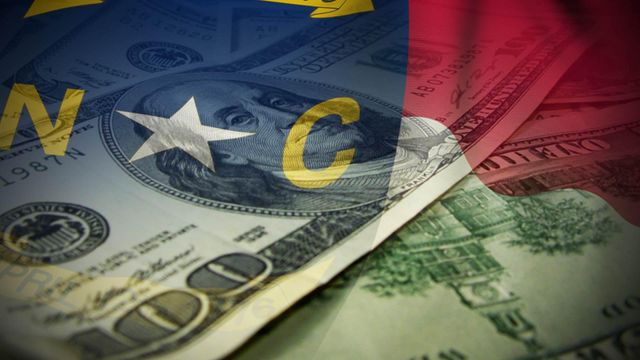NC Gov. Roy Cooper approves $27.9B state budget proposal
North Carolina Gov. Roy Cooper had until the end of Monday to decide what to do with a $27.9 billion spending plan state lawmakers sent him. Facing a possible veto override, Cooper decided to sign it.
Posted — UpdatedThe Democratic governor had until the end of the day on Monday to act on the $27.9 billion spending plan, which passed the Republican-controlled legislature with enough votes from Democrats to thwart a potential veto if the lawmakers reaffirmed their support for the bill.
"Today, I signed the state budget (HB 103) that includes critical investments in education, economic development, transportation and the state workforce," Cooper said in a statement.
The budget increases wages for teachers, state employees and retirees, while also setting aside $1 billion in a fund dedicated to addressing rising costs in the face of economic headwinds.
"This budget does not include Medicaid Expansion, but the leadership in both the House and Senate now support it and both chambers have passed it," Cooper said. "Negotiations are occurring now and we are closer than ever to agreement on Medicaid Expansion, therefore a veto of this budget would be counterproductive."
Republican Senate leader Phil Berger and GOP House Speaker Tim Moore said they hope to continue working with Cooper to tackle the issue.
"The General Assembly passed the 2022 budget with strong bipartisan support, and we are pleased Governor Cooper signed this responsible spending plan into law," Berger and Moore said in a joint statement. "Moving forward, we are committed to working together to improve healthcare access and expand Medicaid, while providing the necessary safeguards to preserve the state’s fiscal strength. Active negotiations are occurring now toward that end."
The budget also didn’t further reduce taxes, as some Republicans had hoped, nor did it provide gas tax rebates Democrats sought.
Critics of the spending plan, which include the State Employees Association of North Carolina and North Carolina Association of Educators, have argued that the spending plan doesn’t go far enough in providing immediate financial relief to families dealing with rising costs. A regular gallon of gas in North Carolina cost an average of $4.32 on Monday, up 48% from the $2.91 customers paid a year ago, according to the American Automobile Association.
Lawmakers’ proposed 3.5% pay raise for most state employees and 4.2% average pay increase for educators is well below the rate of inflation.
Immigration advocacy groups feared the measure would create further distrust between police and immigrants that results in fewer crimes being reported, while Republican supporters of the bill argued it would hold violent criminals accountable.
Senate Bill 101 would have required local sheriffs and jail administrators to find out the immigration status of some inmates and assist U.S. Immigration and Customs Enforcement in keeping them detained before possible deportation.
State Sen. Chuck Edwards, a western North Carolina co-sponsor of the bill, said this year’s measure was more narrowly tailored than a similar 2019 bill. The proposal would have only applied to those charged with serious crimes, such as homicide, rape, kidnapping, human trafficking, assault, child abuse and violation of a domestic violence protective order.
Cooper announced he'd lift the state of emergency he issued in March 2020 in response to the Covid-19 pandemic. He said in a statement that the directive is to be lifted on Aug. 15 because the budget includes changes requested by state health officials to ensure they had the flexibility needed to keep the public protected.
He also said he'd let a regulatory reform bill become law without his signature, despite a provision in the legislation that raised some concerns about consumer protections.
Under House Bill 911, lenders could get money from a borrower through a legal mechanism known as a confession of judgment, which is often found in a contract clause.
Buried in some contracts are provisions where borrowers agree to allow a creditor to obtain a judgment against them over an unpaid bill, often without advance notice or a hearing. Opponents argue the process is a function of predatory lending. While the House on July 1 amended a separate bill to strike down the provision, the confession of judgment language still went to Cooper because the Senate adjourned earlier in the day. Cooper said he expects the Senate to remove the provision.
"This bill contains necessary changes in several areas but will become law without my signature due to a provision involving confessions of judgement that could be unfair to consumers," Cooper said in a statement. "Weakening their due process rights in this way could also conflict with federal regulations that recognize confessions of judgement are harmful to consumers. Legislators have pledged to eliminate this provision and I expect them to be true to their word."
• Credits
Copyright 2024 by Capitol Broadcasting Company. All rights reserved. This material may not be published, broadcast, rewritten or redistributed.






